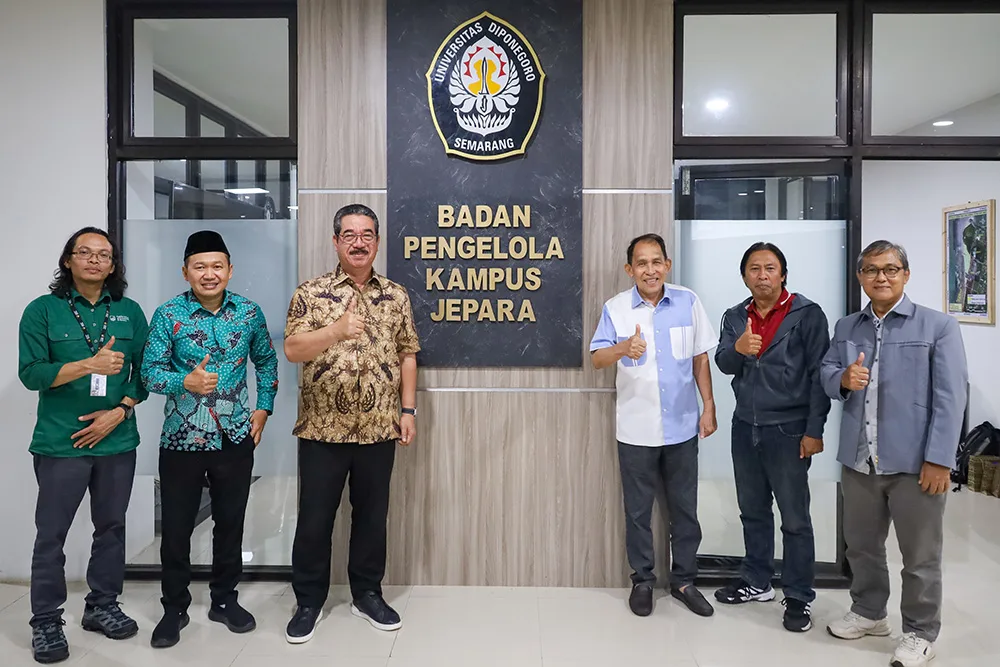UNDIP, Jepara (June 10, 2025) – Universitas Diponegoro (UNDIP) and the Australian National University (ANU) welcomed an official visit from Maluku Governor Hendrik Lewerissa, S.H., LL.M., to UNDIP’s Teluk Awur campus in Jepara Regency. The visit aimed to review a solar-powered desalination technology for brackish or seawater as a potential solution for providing clean water in remote areas.
Governor Lewerissa, accompanied by former Maluku Governor Said Assagaff (2014–2019), was welcomed by Wijayanto, S.IP., M.Si., Ph.D., Vice-Rector for Research, Innovation, Collaboration, and Public Communication at UNDIP; Head of the Jepara Campus Management Agency, Prof. Dr. I Nyoman Widiasa, S.T., M.T.; and Andi Rinto Prastiyo Wibowo, S.Hut., M.Sc., a researcher from the Fenner School of Environment and Society, College of Systems and Society at ANU.
The visit began with a joint discussion, followed by a site inspection of the desalination unit developed by research teams from UNDIP and the Australian National University (ANU). The technology has drawn significant interest, particularly given the Maluku Islands’ geographic challenges in accessing clean water.
“We came here to see firsthand how this technology works because we are well aware that not all islands in Maluku have sufficient access to clean water. There are areas where obtaining potable water remains a major challenge. The government must offer real solutions to the people,” Lewerissa said.
The desalination system under review uses renewable solar energy, making it efficient and environmentally friendly. Beyond the technical discussions, the visit also served to explore opportunities for collaboration, including training programs for youth from Maluku.
“Looking ahead, we hope to establish partnerships between UNDIP, ANU, and higher education institutions in Maluku. Our goal is to equip our young people with the skills to master this technology so that, in the long term, we have local human resources capable of operating these facilities independently,” he added.
At the same event, ANU researcher Andi Wibowo explained that the desalination technology was a joint initiative between UNDIP and ANU, funded through the Knowledge Partnership Platform Australia-Indonesia (KONEKSI) grant.
“This system uses renewable energy via solar panels, making it very eco-friendly. We hope this project can be implemented in multiple regions across Indonesia to help address water scarcity,” said Wibowo.
The desalination technology is designed to be cost-effective, produce minimal waste, and utilize a reverse osmosis system powered by solar energy. It is particularly suited for remote coastal areas due to its portability and ease of operation. Using a 20-by-15-meter solar array capable of generating up to 30,000 kilovolts, the system can filter up to 200,000 liters of clean drinking water per day.
The visit highlights a tangible synergy between academia, local government, and international institutions in delivering innovations with real impact on communities. The solar-powered desalination initiative is expected to provide a sustainable solution for freshwater in coastal and island regions of Indonesia, particularly in areas lacking reliable, clean water infrastructure.
